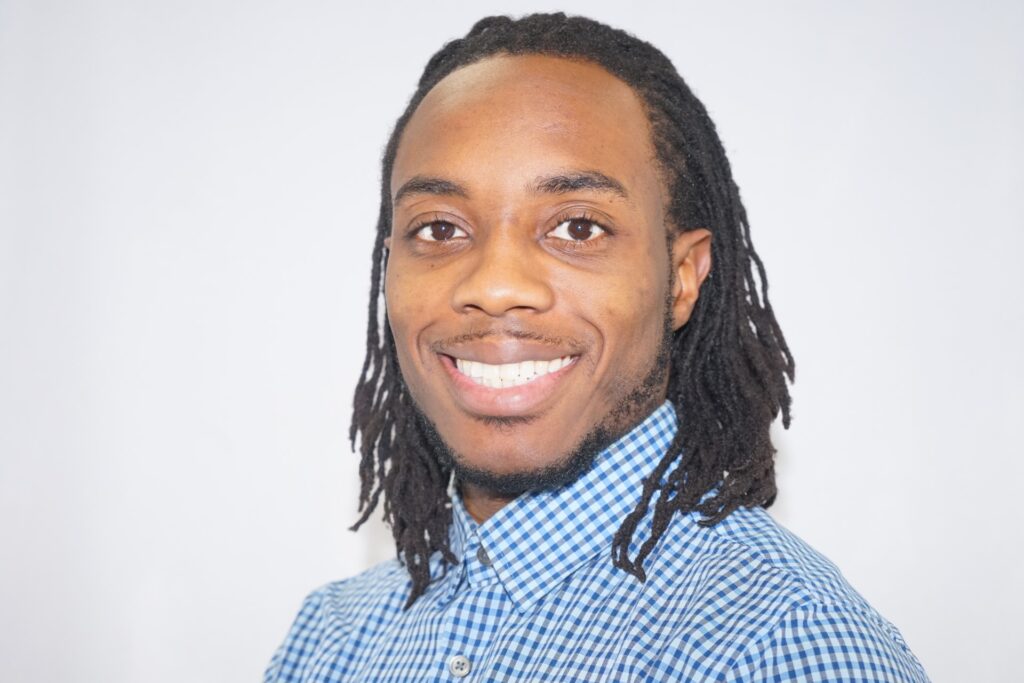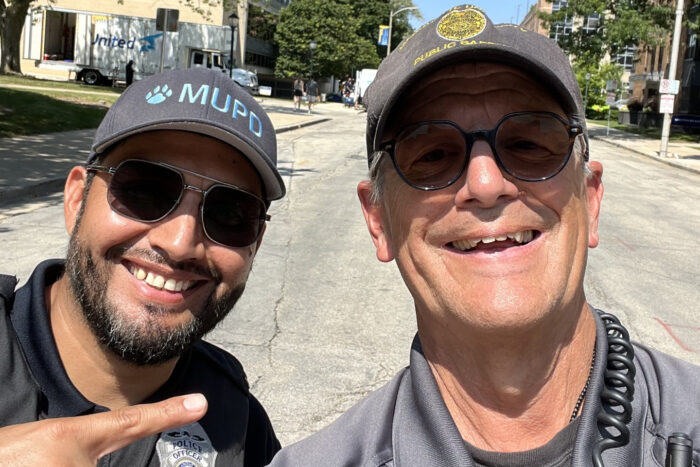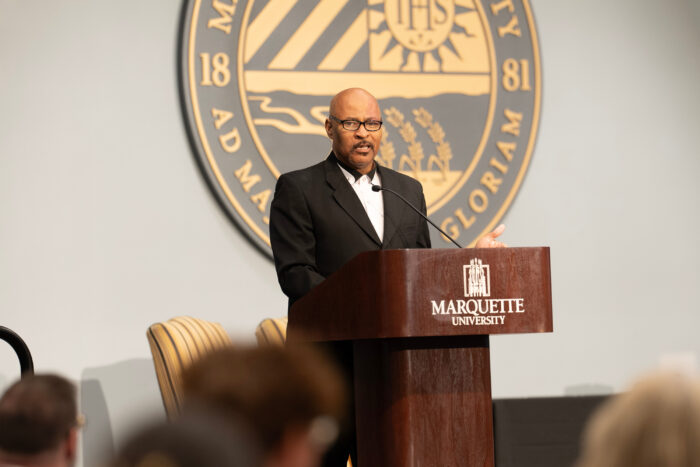
Dr. Albojay Deacon, H Sci ’11, PT ’13, is a trailblazer in the field of physical therapy at Marquette: the Department of Physical Therapy hired the clinical assistant professor to be the department’s diversity, equity and inclusion coordinator, the first faculty position of its kind at the academic department level on campus.
Through his professional involvement, Deacon exemplifies his values of providing opportunities to students from disadvantaged backgrounds who are often underrepresented in many health professions. He’s involved in many organizations and was one of the founders of the National Association for Black Physical Therapist Wisconsin Chapter. Deacon also teaches graduate-level courses at Marquette.
Here in a Q&A, Deacon explains how he became interested in physical therapy, how he makes students feel included on campus and why it’s important to advance diversity in his profession.
Tell me about your background and how you became interested in physical therapy. Was there a moment where you knew this is exactly what you should be doing?
Originally from Milwaukee, I attended Marquette University for both my undergraduate degree, a bachelor’s in exercise physiology and graduate school for a Doctor of Physical Therapy. My initial interest in PT came in my years of high school. Intrigued with the concept of how athletes — being one myself — could still play their sport while injured, caused me to spend a lot of time observing our school’s athletic trainer.
I was fascinated by the science used to predict healing time and return to play, and I kept wanting to learn more. It was my brother who introduced me to PT as he also attended Marquette years prior to me. He requested that I help him practice for an orthopedics exam by being a subject, and it was then that I knew I wanted to pursue PT as a career.
I think every day during my professional phase was a reminder that I should be doing PT. Whether patients got better or not, I was always learning and genuinely loved the process, so there was a lot of motivation to get better as a therapist.
Being the department’s diversity, equity and inclusion coordinator, why is it important to have this profession and others mirror the clients and community they serve?
Representation matters in all aspects of life and all levels of society. While it is important to mirror the community that you serve, it’s more than just that. Individual patients are complex, and they bring with them multiple identities and different cultural backgrounds. We need individuals in the health professions who know how to navigate “difference.” It’s easy to relate to someone in your own group, but as health care providers, there’s an art and skill that comes with healing patients while treating them how they would like to be treated. Lack of diversity in any health profession doesn’t allow for the best reflection and course correction that’s needed to provide the best services to individual patients and their respective communities.
What are some ways you make students feel included on campus?
- Getting to know students by name
- Being intentional about teaching the students the power of working as a team (encouraging student-to-student interaction). Facilitating activities for them to get a chance to know each other.
- Meeting with students to ask about their experiences on campus followed by asking about ways that we can enhance their experience
How does being a Marquette grad lend a hand to teaching the next generation of physical therapy professionals? Are there things you do differently knowing what it’s like being on the other side?
It makes it easier to relate to the students because we have Marquette in common. I try to lead by example. I think the most impactful thing I can do in this position is to be transparent. Students need to understand that it’s OK to struggle, failures will happen, and that taking and giving feedback is critical to professional growth.
Name something that someone would be surprised to learn about you.
Most people don’t know that I also work as a DJ.


